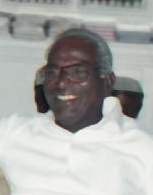Related Research Articles

The president of India is the head of state of the Republic of India. The president is the nominal head of the executive, the first citizen of the country, as well as the supreme commander of the Indian Armed Forces. Droupadi Murmu is the 15th and current president, having taken office from 25 July 2022.

The Central Bureau of Investigation (CBI) is the domestic crime investigating agency of India. It operates under the jurisdiction of the Ministry of Personnel, Public Grievances and Pensions. Originally set up to investigate bribery and governmental corruption, in 1965 it received expanded jurisdiction to investigate breaches of central laws enforceable by the Government of India, multi-state organised crime, multi-agency or international cases. CBI is exempted from the provisions of the Right to Information Act. CBI is India's officially designated single point of contact to act as the liaison with Interpol. The CBI headquarter is located in CGO Complex, near Jawaharlal Nehru Stadium in New Delhi.

The Supreme Court of India is the supreme judicial authority and the highest court of the Republic of India. It is the final court of appeal for all civil and criminal cases in India. It also has the power of judicial review. The Supreme Court, which consists of the Chief Justice of India and a maximum of fellow 33 judges, has extensive powers in the form of original, appellate and advisory jurisdictions.

Arun Jaitley was an Indian politician and attorney. A member of the Bharatiya Janata Party, Jaitley served as the Minister of Finance and Corporate Affairs of the Government of India from 2014 to 2019. Jaitley previously held the cabinet portfolios of Finance, Defence, Corporate Affairs, Commerce and Industry, and Law and Justice in the Vajpayee government and Narendra Modi government.

The Government of India is the federal executive authority of the Republic of India, a federal republic located in South Asia, consisting of 28 states and eight union territories. The government is led by the prime minister who exercises the most executive power and selects all the other ministers. The country has been governed by a NDA-led government since 2014. The prime minister and their senior ministers belong to the Union Council of Ministers—its executive decision-making committee being the cabinet.

Madan Lal Khurana was an Indian politician who served as the Chief Minister of Delhi from 1993 to 1996. He was also the Governor of Rajasthan in 2004. Born in British India, Khurana was known as 'Dilli ka Sher' in his party. He was the Union Minister of Parliamentary affairs and Tourism in the Atal Bihari Vajpayee government. Khurana was a member of Rashtriya Swayansevak Sangh and the Bharatiya Janata Party.

Neelam Sanjiva Reddy was an Indian politician who served as the sixth president of India, serving from 1977 to 1982. Beginning a long political career with the Indian National Congress Party in the independence movement, he went on to hold several key offices in independent India – as Deputy Chief minister of Andhra state and the first chief minister of Andhra Pradesh, a two-time Speaker of the Lok Sabha and a Union Minister— before becoming the Indian president.
Section 377 is a British colonial penal code that criminalized all sexual acts "against the order of nature". The law was used to prosecute people engaging in oral and anal sex along with homosexual activity. As per a Supreme Court Judgement since 2018, the Indian Penal Code Section 377 is used to convict non-consensual sexual activities among homosexuals with a minimum of ten years’ imprisonment extended to life imprisonment. It has been used to criminalize third gender people, such as the apwint in Myanmar. In 2018, then British Prime Minister Theresa May acknowledged how the legacies of such British colonial anti-sodomy laws continue to persist today in the form of discrimination, violence, and even death.

The Faculty of Law, University of Delhi is the law department of the University of Delhi. It has the unique distinction of producing the largest number of sitting judges of the Supreme Court of India, with many notable alumni's from various fields.

Punjala Shiv Shankar was an Indian politician. He served as the Minister of External Affairs, Law, and Petroleum. He was a very influential minister in Indira Gandhi's and Rajiv Gandhi's cabinets and was one of the most senior politicians in India. He also served as Governor of Sikkim from 1994 to 1995 and Governor of Kerala from 1995 to 1996.

The judiciary of India is the system of courts that interpret and apply the law in the Republic of India. The Constitution of India provides concept for a single and unified judiciary in India. India uses a mixed legal system based majorly on the common law system with civil laws applicable in certain territories in combination with certain religion specific personal laws.

Dalveer Bhandari is an Indian jurist. He is currently one of the judges of the International Court of Justice. He is a former judge of the Supreme Court of India and former chief justice of the Bombay High Court, he was also a judge of the Delhi High Court.

Kuttiyil Mathew Joseph is a former judge of the Supreme Court of India; he retired on 16 June 2023. He is former chief justice of the Uttarakhand High Court. Before his appointment as chief justice of the High Court of Uttarakhand on 31 July 2014, he had served as a judge of the Kerala High Court for more than nine years.
Raju Ramachandran is a senior advocate at the Supreme Court of India and a former Additional Solicitor General. He served as an amicus curiae for the Supreme Court of India in the 2002 Gujarat riots case and in the appeal of Ajmal Kasab in the 2008 Mumbai attacks case.
The 2013 Indian Premier League spot-fixing and betting case arose when the Delhi Police arrested three cricketers, Sreesanth, Ajit Chandila and Ankeet Chavan, on the charges of alleged spot-fixing. The three represented the Rajasthan Royals in the 2013 Indian Premier League. In a separate case, Mumbai Police arrested Vindu Dara Singh, Priyank Sepany and Chennai Super Kings Team Principal Gurunath Meiyappan for alleged betting.

Palanisamy Sathasivam is an Indian judge who served as the 40th Chief Justice of India, holding the office from 2013 to 2014. On retirement from his judicial career, Sathasivam was appointed the 21st Governor of Kerala from 5 September 2014 to 4 September 2019. Sathasivam is the second judge from Tamil Nadu to become the CJI, after M. Patanjali Sastri. He is also the first former Chief Justice of the Supreme Court to be appointed the Governor of a state. He is the first Governor of Kerala to be appointed by the Narendra Modi Government.

Indu Malhotra is a retired judge and senior counsel of the Supreme Court of India. She was the second woman to be designated as senior advocate by the Supreme Court. She was the first woman advocate to be elevated as a judge of the Supreme Court of India directly from the bar. She also authored the third edition of The Law and Practice of Arbitration and Conciliation (2014).
Om Prakash Malhotra also known as O.P. Malhotra was a Senior Advocate in the Supreme Court of India, and a distinguished author who brought out the treatise on the Law of Industrial Disputes and authored commentary on the Law & Practice of Arbitration and Conciliation.
Anu Malhotra is a former Judge of the Delhi High Court. She has decided a number of key cases relating to freedom of expression, education, governance, and criminal law in India, including a widely reported ban on the publication of a book about businessman and yoga teacher Ramdev, a case concerning poll campaigns by sitting Members of Parliament, and several public interest petitions filed against municipal corporations regarding infrastructure and governance in Delhi.
Darmar Murugesan is a former Chief Justice of Delhi High Court. He has occupied many key posts in the Judiciary of India. He was elevated as a Judge of the Madras High Court from the Bar. He had formerly occupied the post of Member National Human Rights Commission of India.
References
- ↑ "List of Law Officers". Ministry of Law & Justice, India. Archived from the original on 27 December 2016. Retrieved 5 April 2013.
- ↑ "P P Malhotra appointed ASG". The Times of India . 8 July 2004. Archived from the original on 3 January 2013. Retrieved 5 April 2013.